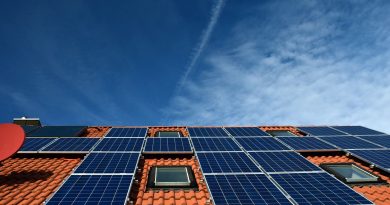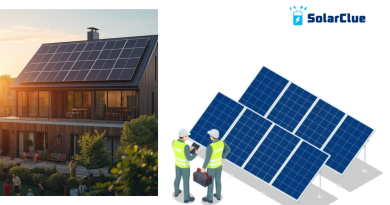How Do You Choose The Best Solar Panels For Your Property
As the world becomes more environmentally conscious, an increasing number of homeowners are contemplating the shift towards cleaner, more sustainable energy resources. One commonly chosen solution is solar power. Solar panels are an effective way to reduce carbon footprint and energy expenses over time. However, the task of choosing the best solar panels for your property can be overwhelming, given the wide variety of options available. This guide seeks to inform readers about the important factors to consider when selecting the best panels for your property.
Table of Contents
Understanding Your Energy Requirements
The first step in choosing the right solar panels is understanding your energy requirements. You need to gauge how much electricity your home consumes throughout the day and the peak usage times. A closer look at your electricity bills from the past year should give you a fairly accurate estimate of your annual consumption. Your solar panel system should be able to match, if not surpass, this energy demand.
Checking Your Roof’s Suitability
Your roof’s condition, orientation, and material can significantly impact the performance of your solar panels. Ideally, the panels should be facing south to capture maximum sunlight. Roofs with steep slopes are also considered more suitable as they can harness greater sunlight. However, solar arrays can be designed to optimally function on flat roofs or those that face east or west. It’s also important to assess your roof’s strength and the weight it can bear, as solar panels are quite hefty. If your roof is nearing the end of its lifespan, it may be wise to replace it before installing solar panels.
Types of Solar Panels
Solar panels differ in terms of efficiency, price and appearance, mainly due to the different types of solar cells they use. The three primary types of solar panels available consist of Monocrystalline, Polycrystalline, and Thin-film. Monocrystalline panels are the most efficient and expensive of the three. They can be identified by their uniform dark look and rounded cells. On the other hand, Polycrystalline solar panels are less efficient and cheaper, characterized by their fragmented, blueish colour. Finally, Thin-film panels, which are the least efficient and cheapest of all, can be identified by their uniform black colour. You should consider the amount of sunlight your location receives, the size of your roof, and your budget when deciding which type of panel is right for you.
Considering the Cost and Savings
While solar panels can feel like a large upfront investment, the cost pays off over time. Consider the savings you will make over the years by significantly reducing your monthly energy bill. Besides this, government incentives and subsidies can help lower the initial installation cost. The best way to get an understanding of potential costs and savings is to get quotations from several reputable solar installation service providers. These should include a breakdown of the costs and estimated savings over time to help you make an informed decision.
Evaluating Warranties and Manufacturer Reputation
A trustworthy and reliable manufacturer should offer a substantial warranty period for their solar panels. Standard industry guarantees can range from 10 to 25 years. Look for a solid performance guarantee, promising that your panels will still be producing a certain percentage of their initial output at the end of the warranty period. An extended warranty period could indicate a manufacturer’s confidence in their product. Spending time researching different manufacturers and reading customer reviews is a trusted way to ensure you’re making a safe and informed investment.
Conclusion
Switching to greener energy solutions like solar power is a significant step toward building a sustainable future while reducing recurring energy costs. Analyzing your energy requirements, understanding your roof’s capacity, knowing about the various solar panel types, considering the potential cost and savings, and evaluating the manufacturer’s reliability are crucial steps in choosing the best solar panels for your property. Remember, the goal is to choose a system that complements your property, fulfills your energy needs efficiently, and fits within your budget. As such, the ‘best’ solar panel will differ greatly from one property to another. Make sure to thoroughly research your options and consult professionals to make the most informed decision that maximizes value for your home and the environment.




